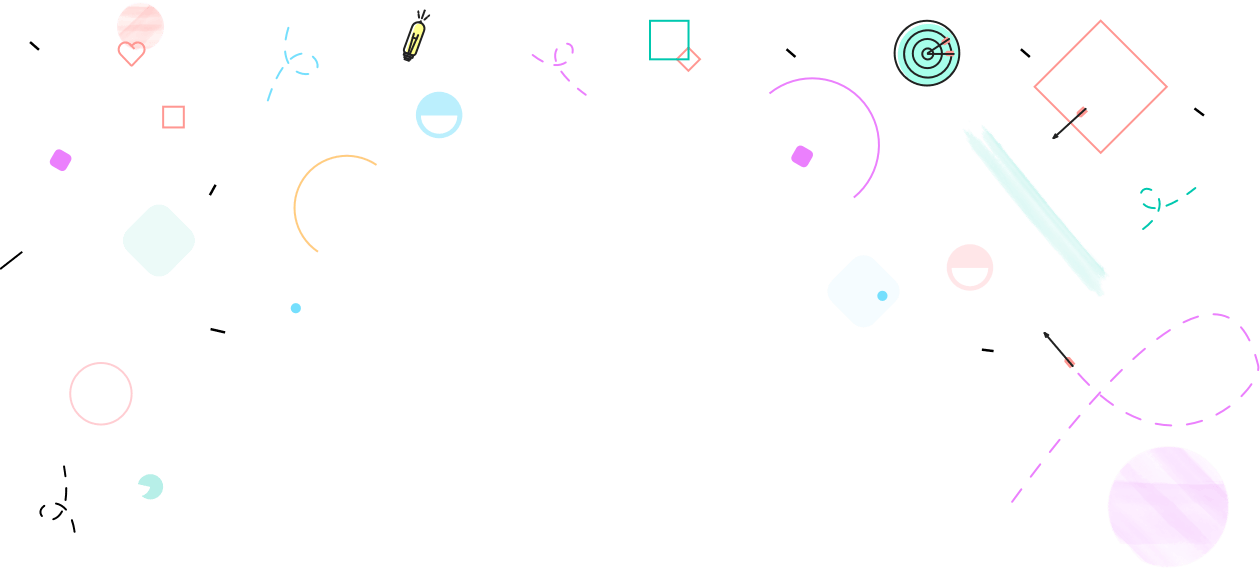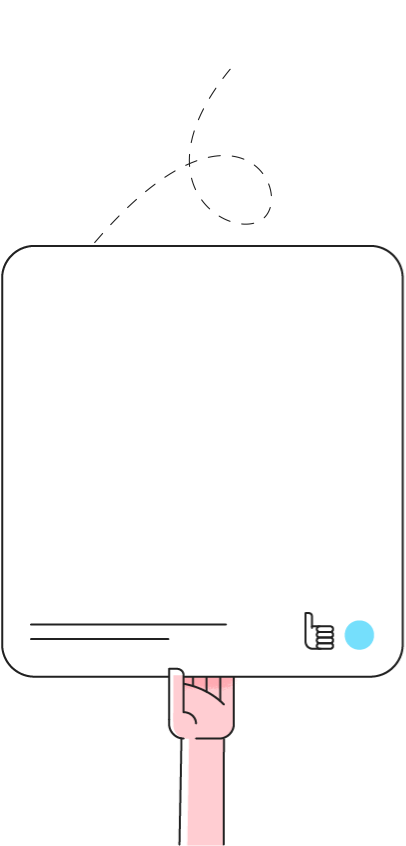Table of Contents
As artificial intelligence (AI) continues to advance, it’s no surprise that it’s starting to have a significant impact on the marketing industry and, more specifically, influencer marketing strategies. AI refers to the development of computer systems that can perform tasks that would typically require human intelligence to accomplish, such as learning, problem solving, pattern recognition, and decision making.
AI encompasses a wide range of techniques and applications, including machine learning, natural language processing, computer vision, robotics, and expert systems. It has become increasingly important in many areas, including healthcare, finance, transportation and door-to-door transport, and education. Simply put, AI is expected to play an even greater role in the future! We’ll explore the potential of AI in marketing and an influencer marketing strategy, including its applications and benefits.
If art appeals to you, check out our next blog post on AI Art and What it Means for Creators.
How Can This Happen?
Email Optimization
AI systems have two major benefits for email marketing: increasing revenue and decreasing costs. AI-powered email marketing tools can improve open and click rates, making campaigns more successful and efficient. These tools also make it easier to create campaigns and reduce the time needed for results, ultimately lowering costs and boosting revenue.
AI in marketing can also help with subject lines, personalizing content, restructuring campaigns using historical data, optimizing send times, cleaning up contacts, and creating engaging copy for transactional emails. By utilizing AI, businesses can optimize email campaigns and improve deliverability for smarter and more personalized newsletters and outreach efforts. Tools like the Resend email api can serve as the underlying infrastructure to ensure that optimized campaigns are actually delivered to recipients.
@cookedbyagi 5 AI email tools I wish I knew earlier #ai #artificialintelligence #email #emailmarketing #marketingtools #marketingtips #digitalmarketingtools #marketing
Augmented and Virtual Reality
AI can improve digital marketing by facilitating the growth of augmented reality (AR) and virtual reality (VR), providing customers with the opportunity to shop for products and customize them. For example, customers can try on different colors of the same item when shopping for dresses or go on a virtual test drive when shopping for a car.
This technology can also increase engagement online and create a better overall customer experience. Brands have started using AR and VR as marketing tools to provide a unique shopping experience and increase sales. By adopting this technology, businesses can find new ways of attracting customers and promoting products.
Chatbots
Chatbots are AI-powered tools that allow brands to engage with users and build credibility through real-time conversations. AI chatbots can work 24/7, offering support even when customer service teams are unavailable. When comparing AI Agents vs Chatbots, it’s important to note that while chatbots handle predefined tasks and responses, AI agents are often more advanced, capable of learning and adapting to more complex interactions over time. For call center teams, this integration enhances efficiency by reducing manual workload, improving first-response times, and allowing human agents to focus on more complex issues—creating a smarter, AI-augmented customer service model. Using chatbots offers a range of benefits, including better customer understanding, real-time decision-making, predictive analytics, and hyper-personalization, making it an excellent tool for improving customer service and increasing customer loyalty.
With chatbots being the leading AI in marketing applications, many companies are already using them to maintain their success. This trend is predicted to stay. Businesses exploring custom AI development can take this even further by building tailored AI solutions that integrate chatbots with existing systems, automate unique workflows, and deliver more personalized user experiences.
To build solutions tailored to specific business goals, many brands now invest in AI chatbot development, leveraging custom conversational agents for deeper engagement and support automation.
Tidio has some great examples of exceptional chatbots on over 25 websites that you might want to look to for reference.
@alliekmiller Yes, ChatGPT is everywhere. And yes, models like this one are a full paradigm shift in tech, software, and beyond. My advice is to become familiar with what it can and cannot do and start to understand how it will affect you in your life. To those who dismiss it as fancy stats or “nothing new”, I suggest you think of it as an early signal, read more about it, and fast forward 10 years. #artificialintelligence #machinelearning #ai #chatbot #tech #technology #automation #future #greenscreenvideo
Product Recommendations
Artificial intelligence using machine learning can improve product recommendations online, making quick and tailored suggestions based on each customer’s behavior and preferences. Amazon, for example, receives up to a third of its income from such recommendations.
With machine learning solutions, businesses can integrate AI-powered product recommendations into their platforms, transforming customer journeys through increased sales, greater satisfaction, and highly personalized interactions. To be effective, these recommendation engines must process large amounts of customer data with high accuracy and track and profile millions of customers in real-time. Personalization is key, as 80% of customers are more likely to purchase from a company that offers personalized experiences and recommendations.
Predictive Analytics
It is set to transform the field of predictive analytics, enabling marketers to make better predictions about future behavior and develop more effective strategies. For instance, AI may be used to improve online courses by enabling instructors to better understand student engagement. AI in marketing will be able to analyze massive sets of data to optimize towards specific objectives and learn from its results.
With AI-powered analytics, businesses will be able to enhance their lead scoring process, glean insights on competitors, and predict customer behaviors. Furthermore, leveraging lead scoring software will provide more accurate and efficient insights into customer behaviors and competitor analysis. These are just a few of the many ways that AI will revolutionize predictive analytics and unify data to drive marketing success.
@rippedtrader AI predicts the stock market #stocktok #stockmeme #ai #optionstrade #swingtrading #bruh
Improved Advertisements
Artificial intelligence is capable of uncovering trends and customer insights to enhance advertising efforts, and it can even personalize advertising for different types of audiences. AI programs can write headlines, create ads, and push notifications, producing more effective ads than humans.
Future marketers will use AI in marketing to uncover new advertising channels, optimize budgets and delivery, use autonomous media buying, and utilize machine learning algorithms for PPC campaigns, among other applications.
Instagram can be a great channel for advertising. Our blog post on How to Advertise on Instagram Effectively will help you to do this, so read up!
Content Creation
Creators can rejoice because it will impact marketing by enhancing content creation through content intelligence. By creating a feedback loop, marketers will receive data-driven insights to yield greater success. Furthermore, AI will help draft optimized social media posts, write data-driven blog posts, and conduct effective keyword research.
AI in marketing will also make the content creation process easier and more effective by providing data-driven feedback while creating content. Better yet, AI will also assist in content profiling, topic inspiration, and content accuracy. AI writing tools like Simplified and Humbot AI will Generative AI is changing content discovery, and Semrush AI optimization helps brands align SEO with GEO to expand visibility in AI-driven results and win the AI shelf.
@yokzona I made 30 pieces of social media content in less than 60 seconds. The power of OpenAI’s Chat GPT can make you a content creator GOD! #chatgpt #openai #socialmediamarketing #contentcreator #fyp #artificialintelligence
How Can This Improve A Brand’s Influencer Marketing Strategy?
AI can revolutionize an influencer marketing strategy in several ways, like identifying the right influencers! AI algorithms can analyze data from social media platforms to identify the most suitable influencers for a particular brand or product. By considering factors like audience demographics, engagement rates, and post history, AI can identify influencers that have the most potential to drive engagement and conversions. Tools like an AI Influencer generator can make this process faster and more accurate, helping marketers connect with the right voices in their niche.
Social media is a big part of influencer marketing, so read up on Which Social Media Platform is Best next. TikTok for instance, has a new feature that is catching a lot of people’s attention.
- Optimizing content: AI tools can analyze the content created by influencers to identify what types of posts generate the most engagement and conversions. By doing so, AI can help influencers create more effective content that resonates with their audience and drives more conversions. Marketers also use Undetectable AI to assess whether AI-assisted content matches the authentic voice that drives audience engagement.
- Fraud detection: AI algorithms can help detect fraudulent behavior by influencers, such as buying fake followers or engagement. This helps ensure that brands are working with genuine influencers who can truly reach and influence their target audience.
- Measuring ROI: AI tools can track the performance of influencer campaigns in real-time, providing insights into the impact of influencer-generated content on key metrics like engagement rates, website traffic, and sales. This can help brands optimize an influencer marketing strategy and maximize their return on investment. Even when evaluating tools like CRM or purchasing software, AI can assist marketers in identifying platforms that align with their campaign goals and budget.
Overall, AI can help streamline an influencer marketing strategy, making it more efficient, effective, and data-driven.
Welcome to a New Era!
Artificial intelligence is transforming the marketing landscape, and influencer marketing strategies no exception. AI-powered tools, including AI video generators, provide marketers with insights into the most effective influencers for their campaigns, help them create more engaging visual content, and monitor the performance of their campaigns in real-time. With AI, marketers can save time and money while achieving better results, especially by using tools like an AI voice generator to streamline audio content creation.

Moreover, AI is making influencer marketing more accessible to small and medium-sized businesses that may not have the resources to launch large-scale campaigns. By leveraging advanced AI business solutions, these businesses can identify niche influencers and craft campaigns that effectively engage their target audience.
As AI continues to evolve, we can expect to see even more innovative solutions for influencer marketing. From advanced analytics to personalized content creation, AI is poised to revolutionize the way we approach influencer marketing. As a result, businesses of all sizes can harness the power of influencers to reach new audiences, build brand awareness, and drive sales.
If you are interested in learning more about how you can improve your brand’s influencer marketing campaign, we have a great blog post for you that is only a click away!























